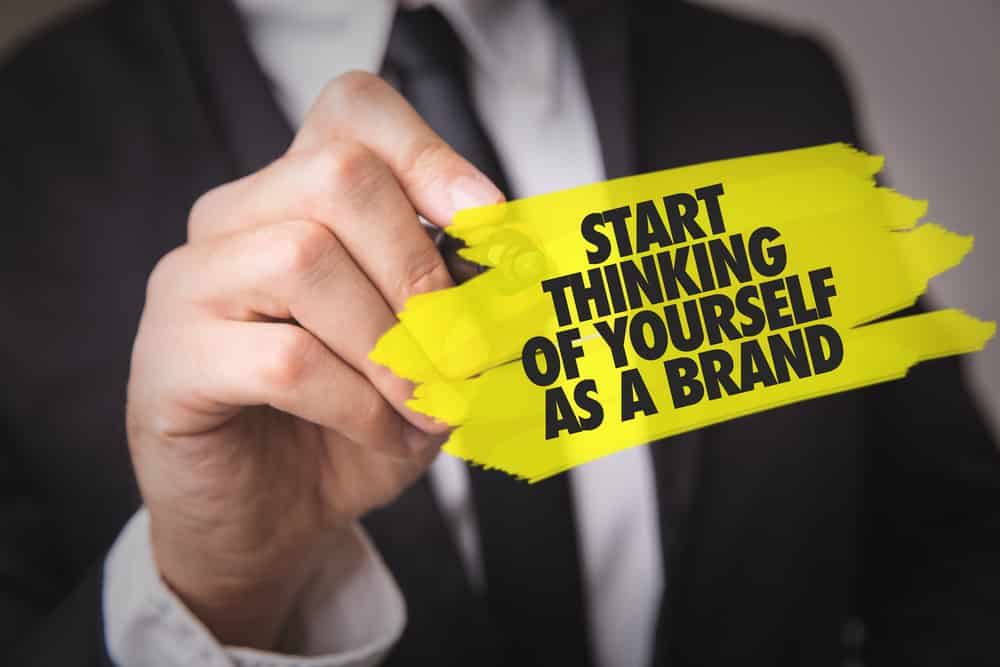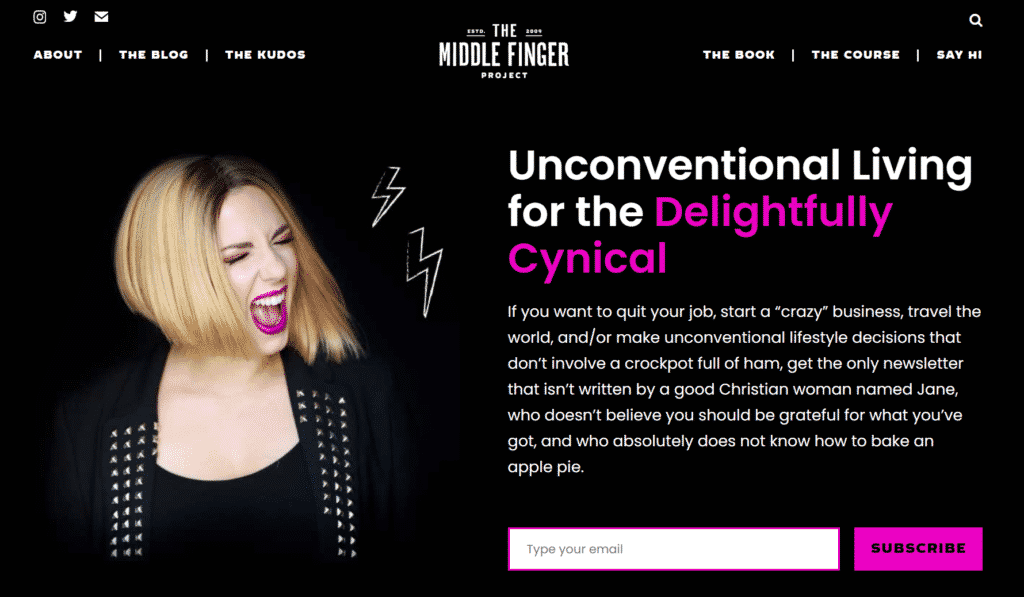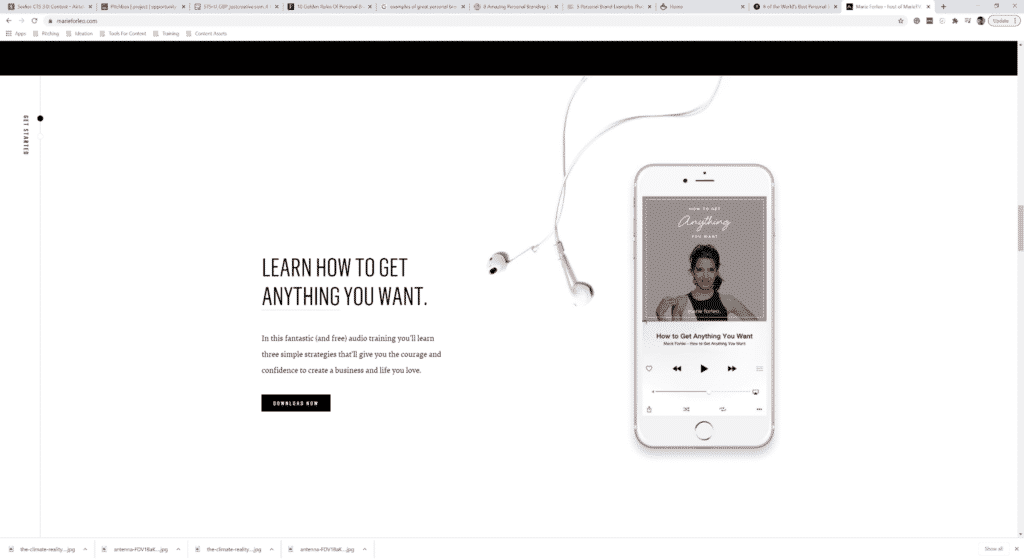This article has been contributed by Stevie Nicks.
There was once a time when nobody knew the name of business leaders. These days, CEOs and managing directors are some of the most recognizable faces of a company – as their own personal brands.

The tech-startup revolution has brought about the concept of thought leaders and industry experts — personalities that define a way of thinking and the progress of innovative sectors. They wow us at conferences, coin defining phrases, and produce books and films that keep us asking more questions.
But how do you become one? How do you build your personal brand as an industry expert, either to boost your business or develop an alternative revenue stream? In this article, we’ll offer four ways to do just that, so you can start improving yourself and your personal brand.
How to Grow Your Personal Brand: The Golden Rules
Before we begin to look at ways to build your personal brand as an industry expert, let’s first analyse some of the golden rules of personal brand development.
Be Yourself (and Live Your Brand)
For many people, the very idea of a personal brand is an exercise in vanity reserved for the worst Instagram influencers and early-2000s celebrities. With this in mind, it’s important to recognize the importance of putting authenticity at the center of yours.
This isn’t about tricking people who don’t typically enjoy personal brands to take a chance on yours, but to put more weight behind your projects and make yourself more trustworthy.
If your brand and what you do are things you genuinely love, it’s much easier to be authentic and get excited about it. Living your brand is about more than PR and remembering key phrases in interviews.
It’s about being available for quick chats with up and comers, doing your research and being vocally passionate about industry developments.
Establish Your Focus Early
Without a focus, a personal brand can quickly become muddled and confusing to the average consumer.
Whether you’re trying to sell a product or get a panel at a prestigious conference, if someone doesn’t get who you are or what you’re about, it’s hard to accomplish anything and truly develop a profitable brand.
The best personal brands are tightly defined and exist within specific niches. Rather than reducing your audience capacity, a niche endears you to a specific audience base and allows you to quickly develop name recognition. This expertise can then be used to expand further.
Consistency Over Speed
It’s better to reach your goal slowly, than to go wildly off track.
Building a personal brand takes time. It’s better to slowly build a base as you iron out the creases of your operation, rather than hoping to strike it big a couple of weeks in.
Developing a personal brand is just as much about building your own experience as it is getting public speaker bookings.
Once you’ve established your focus, start to build towards it slowly and keep the messaging around yourself consistent. You’ll learn vital lessons and earn important contacts to help you when you reach your goal.
4 Ways to Grow Your Brand & Become an Industry Expert
1. Start Teaching (and Learning)
Education plays an important role in what defines someone as an industry expert.
It’s not enough to just have a superior understanding of your industry and execute that through your business. You need to be prepared to pass down that knowledge and use it to empower your colleagues and contemporaries.
There are a few ways in which you can use education as a jumping-off point for building your industry expert personal brand.
Selling your own e-learning courses is a great way to position yourself as an industry expert. By putting yourself in the position of an educator you immediately put more value on your name and knowledge.
Previously you’d have to be invited as a speaker or a lecturer to get the opportunity to position yourself in this way. However, the development of e-learning technology has made it possible for business owners with little capital and name recognition to become educators by:
- Offering a professional e-learning course you can sell
- Weekly ‘social sessions’ where you discuss new ideas and techniques (try live streaming through Facebook or Twitch, or just creating a Twitter thread people can interact with)
- An educational blog for sharing ideas (Moz’s Whiteboard Friday is a great model for inspiration here)
- Prioritizing internal company training
Secondly, finding a mentor will help you immensely. A mentor in your industry won’t just give you a little bit of clout in the boardroom, but vital techniques on building up a name alongside a skillset.
Finally, you should look to continue to educate yourself. No one likes a pompous know-it-all. Having some humility will make you more approachable and engaging, giving you a higher standing among your peers. Don’t be afraid to be seen at industry conferences asking questions, talking to other experts and expanding your knowledge. Great professionals never sit still, they’re always moving forward.
2. Focus on the Visuals
The importance of visuals in branding can’t be underestimated.
Certain brands have been so good at cultivating a strong visual style that just about every website you come across now has the same kind of sleek, simple design.
While you might want to let your work speak for itself, becoming an industry expert is just as much about your personality, look and confidence as it is your technical know-how. That doesn’t mean you have to go all Steve Jobs and pick out a signature item of clothing, but it’s important to understand how your brand can be built through visual content.
Consistency is the key here. Can people recognize you, your business logo and your signature visual style immediately? If they can, it makes it easy for them to associate knowledge they’ve picked up from your work with your brand. If they immediately spot you or your logo in an article or are familiar with your personal content style, it strengthens your brand and makes you appear more professional in their eyes.
Good visual branding creates a sense of consistency and a feeling that you’re everywhere.
3. Don’t Underestimate the Versatility of Social Media
Everyone knows social media is a brilliant personal branding tool, but don’t limit yourself to what everyone else is doing on the platform or your (perhaps) outdated perception of it.
Social media is full of new opportunities every day. You can meet people who run conferences there. Have conversations that become brilliant thought exercises for your industry there. You can even pitch your latest concept or idea there.
Social media is about more than posting the finished article. It’s a place for you to develop ideas and slowly build your brand step by step. You might laugh at people who post all day, but they’re networking the 2021 way, positioning themselves at the forefront of discussions and putting themselves in conversations that will be featured on blog posts, vlogs and industry conference presentations for years to come.
It’s imperative you keep people updated on your moves across social media. Take a page from the influencer playbook. By letting people know about your life (why you’re catching that flight, what you’ve been doing that morning) you’re building a relationship with your audience. If you’ve got something important to say, act like it!
Some of the best ways to use social media as a budding thought leader include:
- Live streaming every morning to initiate discussion
- Joining public conversations about breaking news and innovations
- Asking questions in closed private groups
- Posting highly relevant content (think national days and historic landmarks)
4. Challenge the Established Order
There’s no need to be a contrarian for the sake of it, but rocking the boat of the established order can help get some eyes on your business and quickly build your personal brand.
You shouldn’t start going to conferences and heckling people who propose different ideas, but you should make yourself a vocal personality who isn’t afraid to try new things. Think about all the brands that have made it big claiming to do things differently.
Get behind new ideas and encourage people willing to present them. You never know which concept might take off, so making yourself an early adoptor can help boost your profile by association. Of course, this is a risky game to play, as backing the wrong horse can lower people’s perception of your ability to pick a winner and predict how your industry is evolving. However, if you’re careful with your choices, you can become someone people turn to for an idea of the changing face of your industry.
Challenge the established order by encouraging others and supporting people who will be at the forefront of your business in the next few years. Don’t look at big thinkers and innovators as competitors, but as colleagues you can build your brand alongside. From digital marketing to virtual reality, innovative tech industries have more than enough room for numerous thought leaders, all collaborating and sharing ideas to grow each other’s brands.
Essential Personal Branding Tools
We’ve already touched upon a few of them throughout this article, but it’s worth noting that there are a few crucial tools and opportunities you should know about/use to build your personal brand as an industry expert.
These include:
- Educational tools (e-learning courses, books)
- Coaching
- Conference speaker slots
- Blogs
- Vlogs
- Media coverage (understanding the business of HAROs is an important step)
- Email marketing
- Social media
- Personal brand website (distinctly separate from your business site)
Great Personal Branding Examples to Learn From
To close off, let’s look at some examples of great personal brands in 2021 who have established themselves as industry experts and what you might be able to learn from them.
John and Hank Green (the Vlogbrothers)
YouTubers set a wonderful example for anyone wanting to learn about modern personal brand building.
Perhaps none have done so quite as effectively and across as many different sectors as John and Hank Green, also known as the Vlogbrothers.
These two American brothers started uploading quirky short YouTube vlogs over 15 years ago and have since amassed a passionate audience of adults and teenagers alike, joined by a passion for nerd culture, education and sharing ideas.
Their YouTube fame has led to careers as authors, popular podcasts, educational YouTube shows and extensive merchandising with a wide creator club, making the Vlogbrothers two of the most successful YouTubers of all time.
They stand as a sign of what an honest and authentic personal brand can do and why you shouldn’t be afraid to experiment when growing your brand.
Key Personal Branding Lessons
- Audience engagement is key
- Don’t be afraid to branch out into new projects
- Consistent content delivery builds audience loyalty
Ash Ambirge
Abrasive personalities might push away certain sponsors, but they also attract audiences looking for someone with a little bit more edge (and a whole lot more honesty).
Ash Ambridge is an author and blogger known for her Middle Finger Project, an unrelenting, no punches pulled guide to the world of work, mental health and relationships in the 21st century. The brand and Ash herself have found success through a use of a particular kind of language and demanding presence that treats the audience like adults.
It’s not for everyone, but this is an example of how not being afraid of who you are is a great way to build a brand.
Key Personal Branding Lessons
- Sometimes it helps to just be yourself
- Sucking up to clients and customers won’t always win them over
- You don’t need to win everyone over
Marie Forleo
The industry of inspiration is a huge one, and few personalities are doing it as well as Marie Forleo.
The feminist, writer and entrepreneur is just as much a businesswoman as she is a lifestyle guru, giving her a diverse and commanding aura that her worldwide audience loves to learn from.
Her brand is authentic while acknowledging the realities of growing as a person and an entrepreneur in today’s online world. Forleo’s blog doesn’t shy away from the big issues, making it easier for her to sell training programs to an audience that already knows what she’s about and what she values.
Key Personal Branding Lessons
- Always try and tell an inspiring story
- Audio is a brilliant way to grow your brand
- Keeping up a consistent social media presence is key
Personal Branding Wrap Up
Establishing yourself as an expert or thought leader within your industry isn’t something that happens overnight. It takes years of building a personality and knowing the right people. Timing is everything, but so is the hard work you’ve put in beforehand.
Don’t be afraid to back new ideas and put yourself out there. Industry experts can’t be afraid to speak their minds and be bold in their ideas.
_
About the author: Stevie Nicks is Digital Editor at Just Another Magazine — a website that covers the topics you care about. You’ll find articles about lifestyle, travel, fashion, trends and relationships on our site – each of which is written in our unique style.






